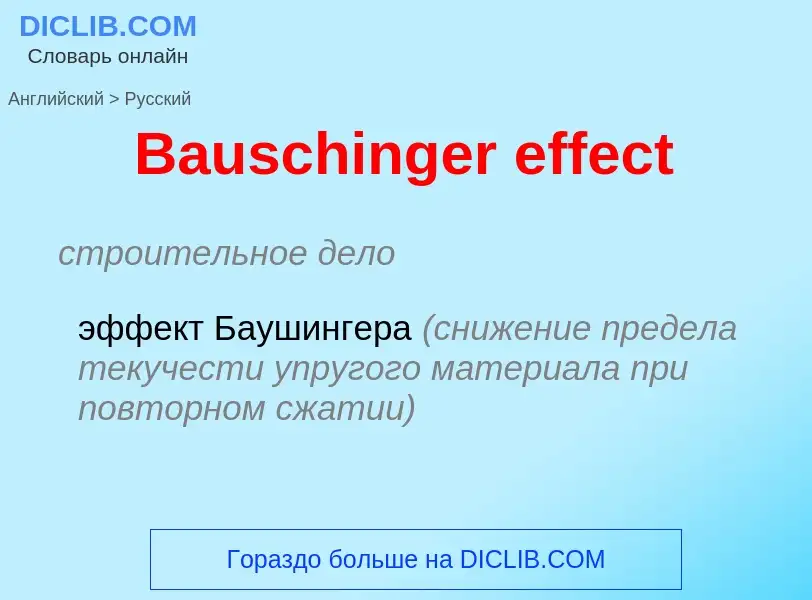Перевод и анализ слов искусственным интеллектом ChatGPT
На этой странице Вы можете получить подробный анализ слова или словосочетания, произведенный с помощью лучшей на сегодняшний день технологии искусственного интеллекта:
- как употребляется слово
- частота употребления
- используется оно чаще в устной или письменной речи
- варианты перевода слова
- примеры употребления (несколько фраз с переводом)
- этимология
Bauschinger effect - перевод на русский
строительное дело
эффект Баушингера (снижение предела текучести упругого материала при повторном сжатии)
общая лексика
термоэлектричество
Определение
Википедия
The Bauschinger effect refers to a property of materials where the material's stress/strain characteristics change as a result of the microscopic stress distribution of the material. For example, an increase in tensile yield strength occurs at the expense of compressive yield strength. The effect is named after German engineer Johann Bauschinger.
While more tensile cold working increases the tensile yield strength, the local initial compressive yield strength after tensile cold working is actually reduced. The greater the tensile cold working, the lower the compressive yield strength.
It is a general phenomenon found in most polycrystalline metals. Based on the cold work structure, two types of mechanisms are generally used to explain the Bauschinger effect:
- Local back stresses may be present in the material, which assist the movement of dislocations in the reverse direction. The pile-up of dislocations at grain boundaries and Orowan loops around strong precipitates are two main sources of these back stresses.
- When the strain direction is reversed, dislocations of the opposite sign can be produced from the same source that produced the slip-causing dislocations in the initial direction. Dislocations with opposite signs can attract and annihilate each other. Since strain hardening is related to an increased dislocation density, reducing the number of dislocations reduces strength.
The net result is that the yield strength for strain in the opposite direction is less than it would be if the strain had continued in the initial direction.


